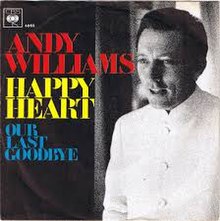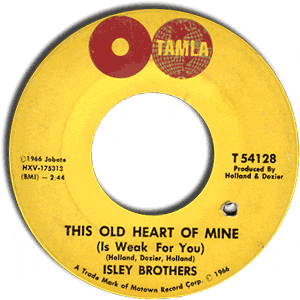
"This Old Heart of Mine (Is Weak for You)" is a Holland–Dozier–Holland song that was a hit for American musical group the Isley Brothers in January 1966 during their brief tenure on Motown's Tamla label. Featuring Ronald Isley on lead vocal, "This Old Heart of Mine" peaked at number twelve on the Billboard Hot 100, and at number six on the Billboard R&B Singles chart.
"Memories Are Made of This" is a popular song about nostalgia, written in 1955 by Terry Gilkyson, Richard Dehr, and Frank Miller. They were the members of a three-pieced group called "The Easy Riders", who served as a backing band for Dean Martin's version of this song, also released in 1955.
"For All We Know" is a soft rock song written for the 1970 film Lovers and Other Strangers, with music by Fred Karlin and lyrics by Robb Wilson and Arthur James. Both Royer and Griffin were founding members of the soft rock group Bread. It was originally performed, for the film's soundtrack, by Larry Meredith. The best known version of the song is by American pop duo the Carpenters which reached No. 3 on the US Billboard Hot 100 chart and No. 1 on the US Billboard Easy Listening chart in 1971. The song was also a hit for Shirley Bassey at the same time in the United Kingdom. It has since been covered by various artists including Petula Clark.

"My Love" is a 1965 single release by Petula Clark which, in early 1966, became an international hit, reaching No. 1 in the US; the track continued Clark's collaboration with songwriter and record producer Tony Hatch.
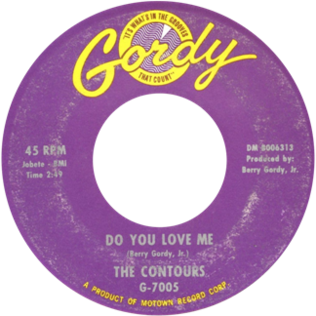
"Do You Love Me" is a rhythm and blues song recorded by the Contours in 1962. Written and produced by Motown Records owner Berry Gordy Jr., it appeared twice on the Billboard Hot 100 chart, reaching numbers three in 1962 and eleven in 1988.

"Let It Be Me" is a popular song originally published in French in 1955 as "Je t'appartiens" interpreted by Gilbert Bécaud. It became popular worldwide with an English version by the Everly Brothers and later with the duet by Betty Everett and Jerry Butler.

"I'll Never Fall in Love Again" is a popular song by composer Burt Bacharach and lyricist Hal David that was written for the 1968 musical Promises, Promises. Several recordings of the song were released in 1969; the most popular versions were by Dionne Warwick, who took it to number 6 on Billboard magazine's Hot 100 and spent three weeks topping the magazine's list of the most popular Easy Listening songs, and Bobbie Gentry, who topped the UK chart with her recording and also peaked at number 1 in Australia and Ireland, number 3 in South Africa and number 5 in Norway.
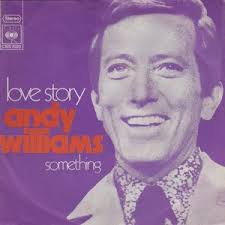
"(Where Do I Begin?) Love Story" is a popular song published in 1970, with music by Francis Lai and lyrics by Carl Sigman. The song was first introduced as an instrumental theme in the 1970 film Love Story after the film's distributor, Paramount Pictures, rejected the first set of lyrics that were written. Andy Williams eventually recorded the new lyrics and took the song to number nine on Billboard magazine's Hot 100 and number one on their Easy Listening chart.

"This Guy's in Love with You" is a hit song written by Burt Bacharach and Hal David and released by Herb Alpert in May, 1968. Although known primarily for his trumpet playing as the leader of the Tijuana Brass, Alpert sang lead vocals on this solo recording, which was arranged by Bacharach. An earlier recording of the song by British singer Danny Williams with different lyrics, titled "That Guy's in Love", appeared on Williams' 1968 self-titled album.
"(Now and Then There's) A Fool Such as I" is a popular song written by Bill Trader and published in 1952. Recorded as a single by Hank Snow it peaked at number four on the US country charts early in 1953.

"Put a Little Love in Your Heart" is a song originally performed in 1969 by Jackie DeShannon, who composed it with her brother Randy Myers and Jimmy Holiday. In the U.S., it was DeShannon's highest-charting hit, reaching number 4 on the Hot 100 in August 1969 and number 2 on the Adult Contemporary chart. In late 1969, the song reached number 1 on South Africa's hit parade. The song rivalled the success of her signature song, "What the World Needs Now Is Love".

"You've Made Me So Very Happy" is a song written by Brenda Holloway, Patrice Holloway, Frank Wilson and Berry Gordy, and was released first as a single in 1967 by Brenda Holloway on the Tamla label. The song was later a huge hit for jazz-rock band Blood, Sweat & Tears in 1969, and became a Gold record.
"The Tip of My Fingers", also titled "The Tips of My Fingers", is a song written and originally recorded by American country music singer Bill Anderson. First included on his 1962 album Bill Anderson Sings Country Heart Songs, the song was a Top Ten country single for him in 1960.

Andy Williams' Greatest Hits is a compilation album by American pop singer Andy Williams that was released in early 1970 by Columbia Records. It was not, however, as its title might suggest, strictly a hit singles compilation, although some of his biggest songs since joining Columbia were included. A couple of selections were never released as singles by Williams, and his signature song, "Moon River", was released in the 7-inch single format but only for jukeboxes. His six Cadence singles that made the Top 10 on Billboard magazine's Hot 100 are passed over for the inclusion of his number 11 hit from that label, "The Hawaiian Wedding Song", and 17 of his Columbia recordings that made the Hot 100 up until 1970 are left out here in favor of "Charade", which spent its one week on the chart at number 100.

Happy Heart is the twenty-third studio album by American pop singer Andy Williams, released in the spring of 1969 by Columbia Records and continued the trend of his recent albums in relying exclusively on contemporary material. This particular project eschewed offerings from Broadway and Hollywood that had been predominant on his LPs with Columbia.

Raindrops Keep Fallin' on My Head is the twenty-fifth studio album by American pop singer Andy Williams and was released in the spring of 1970 by Columbia Records. Williams was less focused on covering recent hits on this project and instead selected several songs from the singer-songwriter genre. The concept for the album came from Mason Williams, who contacted producer Dick Glasser about co-producing an album that would give Williams's fans a medley of songs that did more than just highlight the most familiar parts of popular songs but rather focus on a unifying theme or storyline of songs that were not necessarily hit records. Billboard magazine opined that the album "may well be titled 'A Journey Through Life.' Through carefully selected songs it conveys a message of dreams, hopes, reality, frustrations and ultimate truth."
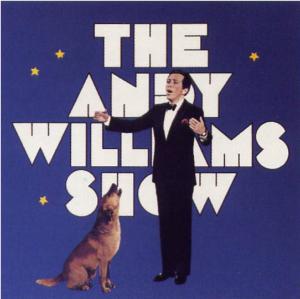
The Andy Williams Show is the twenty-sixth studio album by American pop singer Andy Williams that was released in the fall of 1970 by Columbia Records. In his review on AllMusic.com, William Ruhlmann writes that "The Andy Williams Show LP was not a soundtrack recording from the TV series, and it was not really a live album, although it gets categorized as such. What appears to be the case is that Columbia Records took a group of Williams' studio recordings, most of them made during the summer of 1970 and consisting of his versions of recent soft rock hits, and added a lot of canned applause along with some of the kind of musical interludes used to usher numbers on and off on the show, including bits of its "Moon River" theme music at the start and the finish."

"Save Me" is a country-influenced pop song written by Guy Fletcher and Doug Flett. It was originally recorded in 1976 by Northern Irish singer Clodagh Rodgers, for her album of the same title, and released as a single. The song's narrator describes feeling bored and out of place at a party, and slipping out with the only man she is attracted to.

The Village of St. Bernadette is the sixth studio album by American pop singer Andy Williams and was released in early 1960 by Cadence Records. It was described by Billboard magazine as "a lovely set of pop inspirational, hymns, and religious themes".
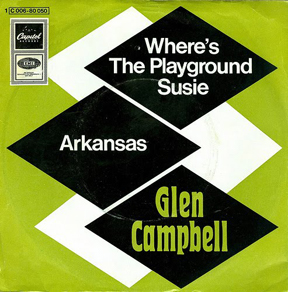
"Where's the Playground Susie" is a song written by Jimmy Webb and recorded by American country music singer Glen Campbell. It was released in April 1969 as the second single from the album Galveston. The song peaked at number 26 on the Hot 100, number 28 on the U.S. Billboard Hot Country Singles chart, and number 8 on the Canadian RPM Top Singles chart.

